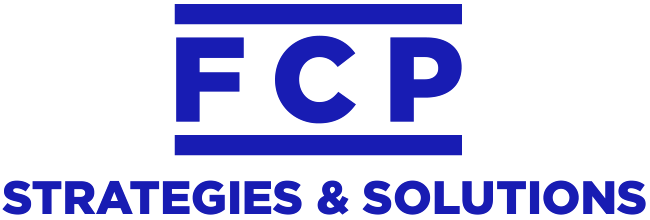Financial institutions and FinTech companies have expanded the collection and use of customer information as the capabilities of technology increased its capacity to share, channel, capture, store and analyse data about an individual customer, products and services.
In decades past, with the significant cost of memory storage, the application of captured information could allow simple support of basic trend analysis of volume, location and types sales used by companies to understand past patterns of consumer demand / sales and assist in improving timely delivery of products and customer services to meet demand.
With technological advancements in data storage supported by extreme reduction in memory storage costs, the volume and type of information collected increased proportionately and was coupled with more capacity for sophisticated computer analysis. Financial institutions could undertake more extensive data capture and trend analysis to target consumer needs based on tracking a variety of new data elements including the customer’s age / date of birth, family status, gender, location, employer, income, credit ratings, assets, financial products acquired, etc. This advancement meant that the study of the consumer in the market place advanced from simple data providing a descriptive analysis of business sales based on customers’ past actions to the next stage of analysis that can predict the timing and probability of future consumer actions / decisions based on multiple data facts profiling the consumer.
More recently, with continued advancements in capturing, tracking and analysing extensive and multiple sources of information (often referred to as BIG DATA), Financial Institutions can access much more customer data and in-depth behavioural profiles that allows them to not only sell based on “predicted” needs or personal characteristics but to now identify and target key behaviours and motivators for individuals and segments of consumers that can alter a customer’s normal pattern of behaviour and decision making process regarding financial choices and decisions.
For example, the data analysis will demonstrate the best method of “Framing” the marketing of financial products and services in ways that will cater / target to an individual’s preferences, beliefs and cognitive abilities.
“The results of behavioural economics studies and research are/have been (mis)used or utilised by firms, including financial institutions, to trigger or exacerbate consumers’ biases. Product design, marketing techniques or sales processes sometimes build on consumers’ misbeliefs and intuitive judgements and decision making to enhance sales.”
Behavioural Economics and Financial Consumer Protection, Anne-Francoise Lefevre and Michael Chapman, OECD 2017, https://www.oecd-ilibrary.org/docserver/0c8685b2-en.pdf?expires=1620161426&id=id&accname=guest&checksum=301A304913DF6A9119BE882F1739C2D0
PROS & CONS?
Financial Institutions can apply the understanding of a consumer from the data analysis of consumer behaviour in a positive manner to improve customer services, product / services design, distribution channels, focus on proper targeted markets and increase customer satisfaction based on their identified needs / requirements. This is fair.
However the growing science and use of analytics is migrating from the simple study of consumer behavioural economics based on collection of data and surveys collected for the purpose of trend analysis of consumer demand and sales… to expanding data collection and applying the behavioural sciences to predict how consumers would likely respond to future marketing, advertising and sales promotions … to then further identifying specific “triggers” of consumers behaviour to actually alter / change consumer patterns of beliefs, application of existing biases and the decision making behaviour for the benefit of the financial institutions. Why would a major bank use a broadly advertised moto of “you’re richer than you think!” when in fact the country has a deep consumer debt problem? I assume their behavioural analysis indicates that it appeals to consumers and drives them into their door because it gives hope that in fact, they must have extra money hidden somewhere and this bank can find it. I am reminded of another gimmick used by a credit card company that offer extremely low interest rate by stating the credit card offered “a rate as low as” close to 1%. Upon investigation, we found that less than 5% of applicants were actually given that rate; the rest received the normally high interest rate. By advertising such an ultra cheap rate, the institution knew many consumer would be attracted to the campaign allowing the institution to then issue thousand of new cards but at its high rates without advising the consumers before issuing the cards. The “framing” of an ultra low interest rate overrode rational decision making whereby one should know what the interest rate will be on a card before applying.
So, perhaps the market place is no longer demand driven by consumers’ free and independent choice but rather consumer demand driven by the persuasive application of behavioural science by financial institutions in their advertising, promotions, social media content, advice and front door sales. Data rich companies who have perfected the science of persuasion also create an unfair competitive advantage for new entrants trying to enter existing markets which may not have the advantage of extensive consumer data. When we allow the sophisticated and unfettered use of behavioural triggers, I question how do we now define what freedom of choice means?
One can understand that there are benefits of “big data” to solve many of the world’s issues and questions, however when combined with the unethical use of behavioural science and analytics, has data collection and behavioral manipulation gone too far? Data is now referred to as digital gold or the new oil for institutions; but consumers receive no benefit and perhaps suffer the detriment of being manipulated into unwise choices or not the best choices.
Has it reached a point where the use of data and AI becomes an unethical and abusive tool in the market place; when it’s used to easily alter consumers’ beliefs and rational decision making for the sole benefit of profiting companies? Have we not seen evidence of its power to sway election outcomes?
Do policy makers / regulators need to step in? For further thoughts, here are a few resources provided that deal with this question.
https://www.oxera.com/insights/agenda/articles/consumer-protection-in-the-online-economy/
http://www.finconet.org/Behavioural-Insights-Conduct-Supervision_Seminar-Report-2019.pdf

